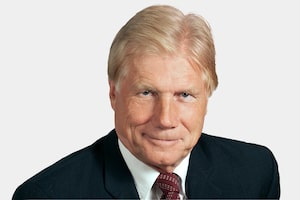Is there a moderate Tory left in this land? There are many, of course. It's just that they have no voice. They might as well be in cement shoes at the bottom of Lake Nipigon.
This year, in particular, it has become evident just how much the old Tories of Robert Stanfield and Dalton Camp and Brian Mulroney and Joe Clark have been vanquished.
During their first years of governance, Stephen Harper's Conservatives paid heed to the views of that progressive breed. But the party's hard right now appears, with a few policy exceptions, to have assumed control of the agenda. And that agenda is about keeping out boat people, letting in Fox News, building new jails, reviewing affirmative action, killing the gun registry, playing down climate change, revamping the census and giving more voice to social conservatives.
Along with Mr. Harper, today's dominant players are John Baird, Jason Kenney, Rob Nicholson, Vic Toews, Stockwell Day and the PM's chief of staff, Guy Giorno. All could probably serve comfortably under Dick Cheney. For an idea how the party has changed, and how conservative governance has changed, recall some of the senior figures under Mr. Mulroney: Mr. Clark, Don Mazankowski, Flora MacDonald, Lowell Murray, Barbara McDougall, chief of staff Hugh Segal. Most of them could have served comfortably under Lester Pearson.
In the days of the old Tories - all the way from John A. Macdonald to Mr. Mulroney - the moderates were in command. There was always a hard-right faction in the party that exercised some clout. But it was a faction. These conservatives were condescendingly viewed as dinosaurs, and most everyone, rolling their eyes at the mention of their names, figured they would remain as such. If you suggested that, one day, they would be in complete control of the government, you would have been sent off to the nearest rubber room.
The key to their ascendancy was the union of the Canadian Alliance and the Progressive Conservatives at the end of 2003. It was supposed to be a merger, but it was, in fact, a takeover. The Alliance was clearly the dominant partner, having five times as many seats in the House of Commons. The merged party then elected Mr. Harper as leader. He shrewdly managed things so as to give the old Progressive Conservatives a voice for a certain time. But it seems that time has pretty much expired. His own brand of conservatism, as one would expect, is taking over. Only when the politics of the day absolutely demands he show a progressive side will he do so.
Mr. Harper's control of the party is such that there isn't a red Tory in the country who will dare speak out. The garrison party, as it's sometimes called, no longer has policy debates wherein dissenters have a chance to air their views. The role of the party's rank and file is not to develop policy but to raise funds and tear down opponents.
The old Tories have few but themselves to blame for their demise, starting with the 1993 election when they reduced themselves to two seats. Another critical moment came in 2003 when they staged a disastrous leadership convention, electing Peter MacKay by way of a backroom deal with David Orchard. The party left that convention in no shape to continue on its own. This allowed Mr. Harper, the Alliance leader, to move in for the kill.
His dominance has been such that, even if he fell on hard times and decided to move on, the right side of the party probably would still be in a strong enough position to dictate a successor. Moderate Tories have a couple of potential leaders. One is Bernard Lord, the former premier of New Brunswick, who would be strong down east and in Quebec. Another is Environment Minister Jim Prentice, who's trying to maintain his image as a major player while being given nothing to do on the climate-change file.
The question of whether old-style Tories can ever return to claim control of the party is of defining importance. The Canada we know was built by two moderate parties. It was a blend of the centre and the centre-left. If the old Tories don't re-emerge, the Canada of the future will be measurably different - a hybrid of the centre and the hard right.
 Lawrence Martin
Lawrence Martin